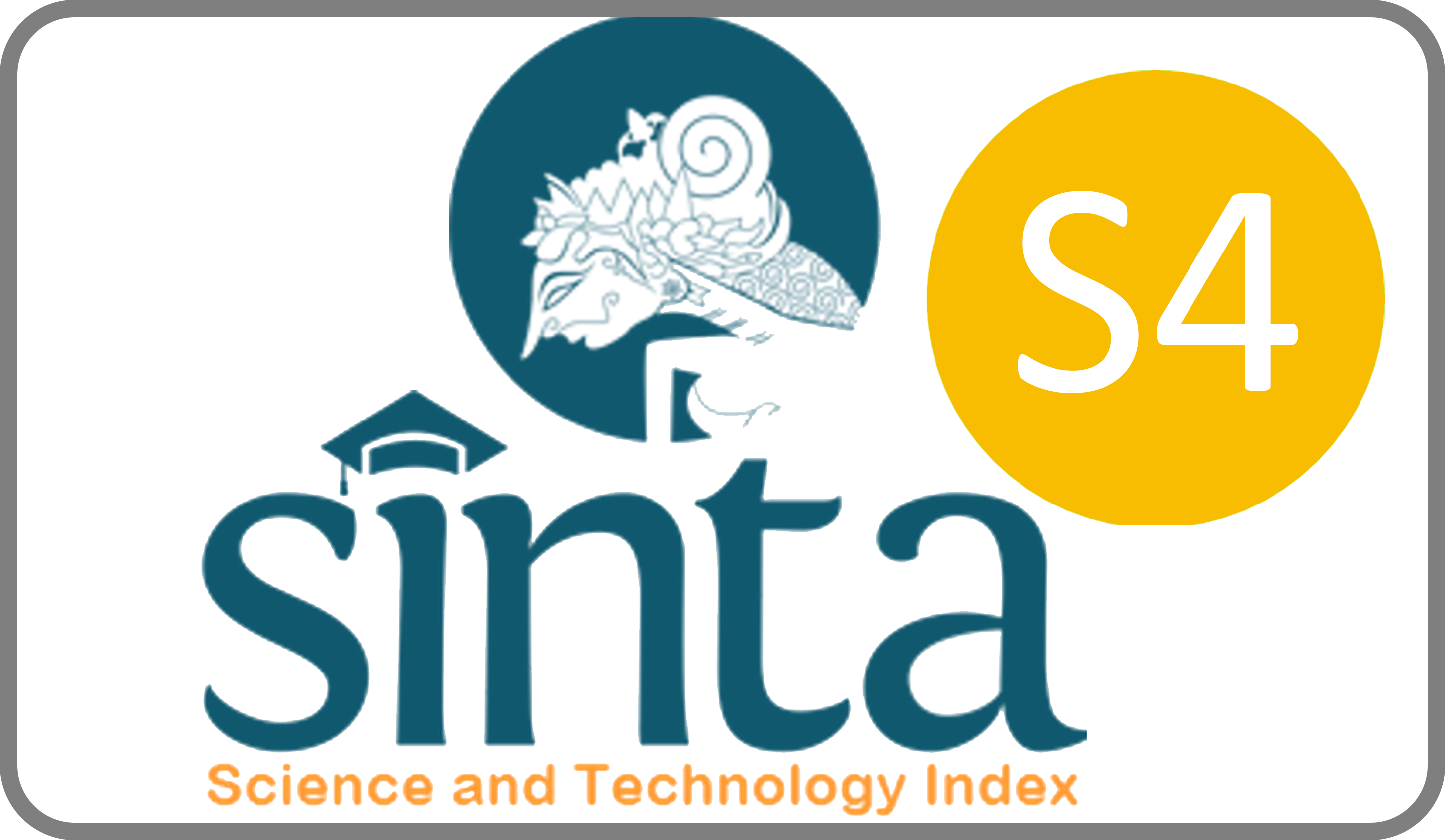SENSORY GARDEN ACTIVITIES: A WELL-BEING PROGRAM FOR ELDERLY WITH RISK OF DEMENTIA IN WONOREJO URBAN VILLAGE, SURABAYA
Downloads
This article discusses a community service initiative in partnership with the Sapto Argo Elderly Community Health Post in Wonorejo District, Surabaya, targeting 17 elderly individuals at risk of dementia who enjoy gardening. Conducted from August to September 2023, this program introduced a recreational therapy-based sensory garden activity. Given that mental health programs focusing on elderly well-being are rarely implemented, this activity aimed to address that gap. Evaluation used a one-group posttest-only design, incorporating interviews and observations, and followed the Bradford Well-Being Profile to assess elderly well-being indicators. The evaluation revealed that the sensory garden activities had a positive impact on participants' well-being, enhancing their sense of purpose, positive emotions, and social interactions. Overall, the program successfully supported the mental health of the elderly at risk of dementia through meaningful and engaging activities.
American Psychiatric Association. 2013. Diagnostic and Statistical Manual of Mental Disorder, fifth edition. American Psychiatric Association.
Badan Pusat Statistik Jawa Timur. 2020. “Persentase Penduduk Lansia 2018-2020.” 2020. https://jatim.bps.go.id/indicator/12/379/1/persentase-penduduk-lansia.html.
Bradford Dementia Group. 2008. The Bradford well-being profile. West Yorkshire: University of Bradford.
Collins, Haley, Marieke Van Puymbroeck, Brent Hawkins, dan Julie Vidotto. 2020. “The Impact of a Sensory Garden for People with Dementia.” Therapeutic Recreation Journal 54, no. 1: 48–63. https://doi.org/10.18666/trj-2020-v54-i1-10077.
Freitas, Maria Célia de, Terezinha Almeida Queiroz, dan Jacy Aurélia Vieira de Sousa. 2010. “Thee meaning of old age and the aging experience of in the elderly” 44, no. 2: 407–12.
Gonzalez, Marianne T, dan Marit Kirkevold. 2014. “Benefits of Sensory Garden and Horticultural Activities in Dementia Care: A Modified Scoping Review.” Journal of Clinical Nursing 23, no. 19–20 (Oktober): 2698–2715. https://doi.org/10.1111/jocn.12388.
Iso-Markku, Paula, Urho M Kujala, Keegan Knittle, Juho Polet, Eero Vuoksimaa, dan Katja Waller. 2022. “Physical Activity as a Protective Factor for Dementia and Alzheimer’s Disease: Systematic Review, Meta-Analysis and Quality Assessment of Cohort and Case-Control Studies.” British Journal of Sports Medicine 56, no. 12 (Juni): 701–9. https://doi.org/10.1136/bjsports-2021-104981.
Janaris, Sarah Fitri, Sharon Gondodiputro, dan Nita Arisanti. 2020. “Risk Factors of Dementia in Elderly of Bandung City, Indonesia: A Community-Dwelling Study.” Althea Medical Journal 7, no. 4: 216–22. https://doi.org/10.15850/amj.v7n4.2150.
Kaufmann, Elke G, dan Sabine A Engel. 2016. “Dementia and Well-Being: A Conceptual Framework Based on Tom Kitwood’s Model of Needs.” Dementia (London, England) 15, no. 4 (Juli): 774–88. https://doi.org/10.1177/1471301214539690.
Kementerian PPN. 2020. “Pedoman teknis penyusunan rencana aksi: Edisi II tujuan pembangunan berkelanjutan/ sustainable development goals (TPB/SDGs).” Kementerian PPN.
Livingston, Gill, Jonathan Huntley, Andrew Sommerlad, David Ames, Clive Ballard, Sube Banerjee, Carol Brayne, dkk. 2020. “Dementia Prevention, Intervention, and Care: 2020 Report of the Lancet Commission.” Lancet (London, England) 396, no. 10248 (Agustus): 413–46. https://doi.org/10.1016/S0140-6736(20)30367-6.
Madsø, Kristine Gustavsen, Elisabeth Flo-Groeneboom, Nancy A. Pachana, dan Inger Hilde Nordhus. 2021. “Assessing Momentary Well-Being in People Living With Dementia: A Systematic Review of Observational Instruments.” Frontiers in Psychology 12, no. November. https://doi.org/10.3389/fpsyg.2021.742510.
Pariama, Aprillia Mauren, Yulius Yusak Ranimpi, dan Adi Setiawan. 2020. “Subjective Well-Being and Healthy Behavior of Elderly With Dementia Alzheimer’S (a Phenomenological Study).” MNJ (Malang Neurology Journal) 6, no. 2: 82–87. https://doi.org/10.21776/ub.mnj.2020.006.02.7.
Scott, Theresa L, Ying-Ling Jao, Kristen Tulloch, Eloise Yates, Oliver Kenward, dan Nancy A Pachana. 2022. “Well-Being Benefits of Horticulture-Based Activities for Community Dwelling People with Dementia: A Systematic Review.” International Journal of Environmental Research and Public Health 19, no. 17 (Agustus). https://doi.org/10.3390/ijerph191710523.
Sharma, Anshika, Isra Farouk, dan Sunil Kumar Lal. 2021. “Covid-19: A review on the novel coronavirus disease evolution, transmission, detection, control and prevention.” Viruses 13, no. 2: 1–25. https://doi.org/10.3390/v13020202.
Stewart, Michelle. 2016. Horticulture Therapy Book. New England: Antioch University.
Ulrich, Roger S., Robert F. Simons, Barbara D. Losito, Evelyn Fiorito, Mark A. Miles, dan Michael Zelson. 1991. “Stress recovery during exposure to natural and urban environments.” Journal of Environmental Psychology 11, no. 3: 201–30. https://doi.org/10.1016/S0272-4944(05)80184-7.
Undang-Undang RI. 1998. “Kesejahteraan Lanjut Usia.” Mensesneg.
World Health Organization. 2015. World report on ageing and health. Switzerland: WHO Press.
Copyright (c) 2025 Putu Angita Gayatri, Annisa Putri Soegiharto, Shafira Tri Adisti, Dida Amanda Pratiwi, Pramesti Pradna Paramita

This work is licensed under a Creative Commons Attribution-ShareAlike 4.0 International License.
JLM by Unair is licensed under a Creative Commons Attribution-ShareAlike 4.0 International License.
1. The journal allows the author to hold the copyright of the article without restrictions.
2. The journal allows the author(s) to retain publishing rights without restrictions
3. The legal formal aspect of journal publication accessibility refers to Creative Commons Attribution Share-Alike (CC BY-SA).
4. The Creative Commons Attribution Share-Alike (CC BY-SA) license allows re-distribution and re-use of a licensed work on the conditions that the creator is appropriately credited and that any derivative work is made available under "the same, similar or a compatible license”. Other than the conditions mentioned above, the editorial board is not responsible for copyright violation.


















